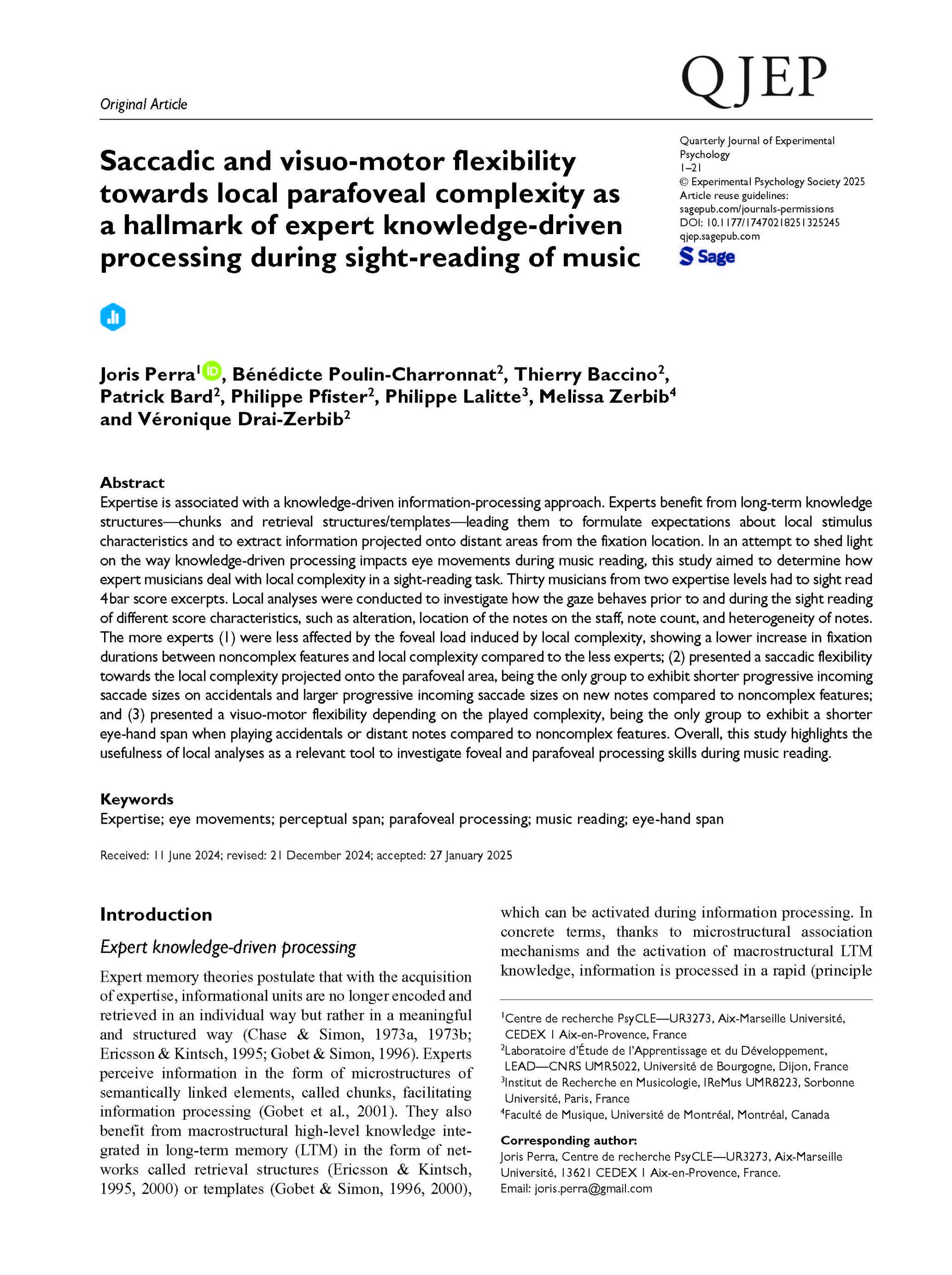Expertise is associated with a knowledge-driven information-processing approach. Experts benefit from long-term knowledge structures—chunks and retrieval structures/templates—leading them to formulate expectations about local stimulus characteristics and to extract information projected onto distant areas from the fixation location. In an attempt to shed light on the way knowledge-driven processing impacts eye movements during music reading, this study aimed to determine how expert musicians deal with local complexity in a sight-reading task. Thirty musicians from two expertise levels had to sight read 4 bar score excerpts. Local analyses were conducted to investigate how the gaze behaves prior to and during the sight reading of different score characteristics, such as alteration, location of the notes on the staff, note count, and heterogeneity of notes. The more experts (1) were less affected by the foveal load induced by local complexity, showing a lower increase in fixation durations between noncomplex features and local complexity compared to the less experts; (2) presented a saccadic flexibility towards the local complexity projected onto the parafoveal area, being the only group to exhibit shorter progressive incoming saccade sizes on accidentals and larger progressive incoming saccade sizes on new notes compared to noncomplex features; and (3) presented a visuo-motor flexibility depending on the played complexity, being the only group to exhibit a shorter eye-hand span when playing accidentals or distant notes compared to noncomplex features. Overall, this study highlights the usefulness of local analyses as a relevant tool to investigate foveal and parafoveal processing skills during music reading.
Saccadic and visuo-motor flexibility towards local parafoveal complexity as a hallmark of expert knowledge-driven processing during sight-reading of music
